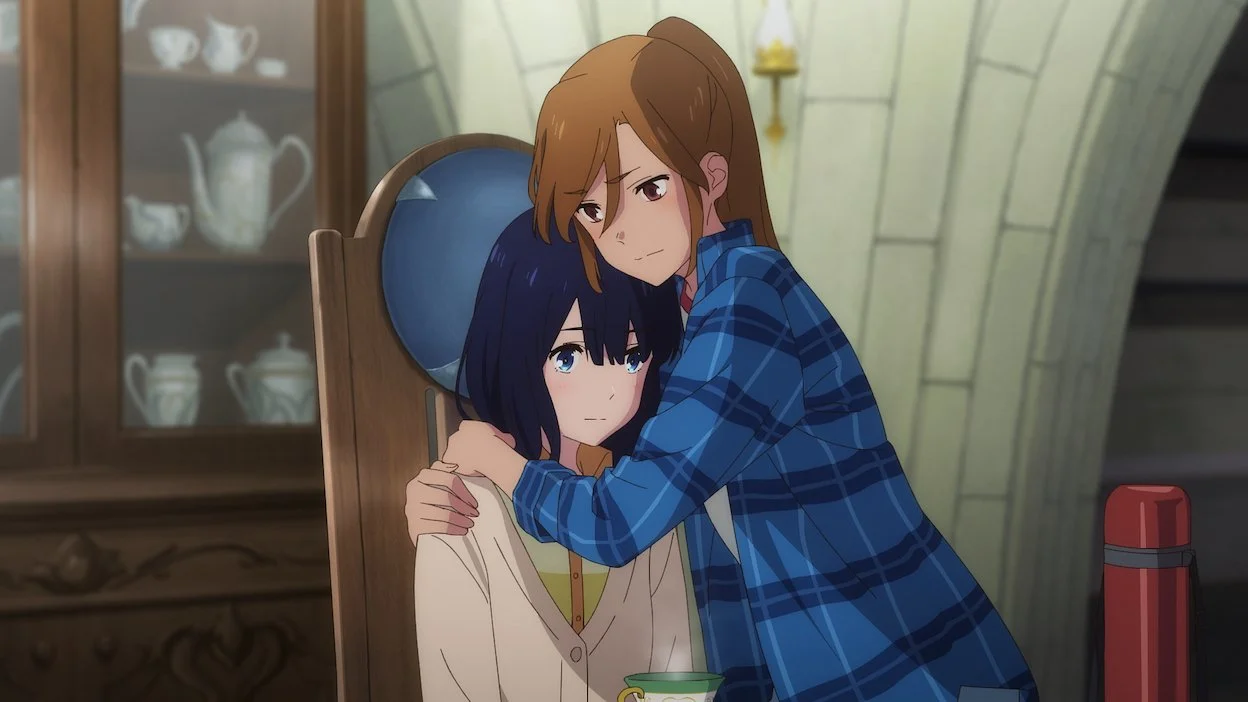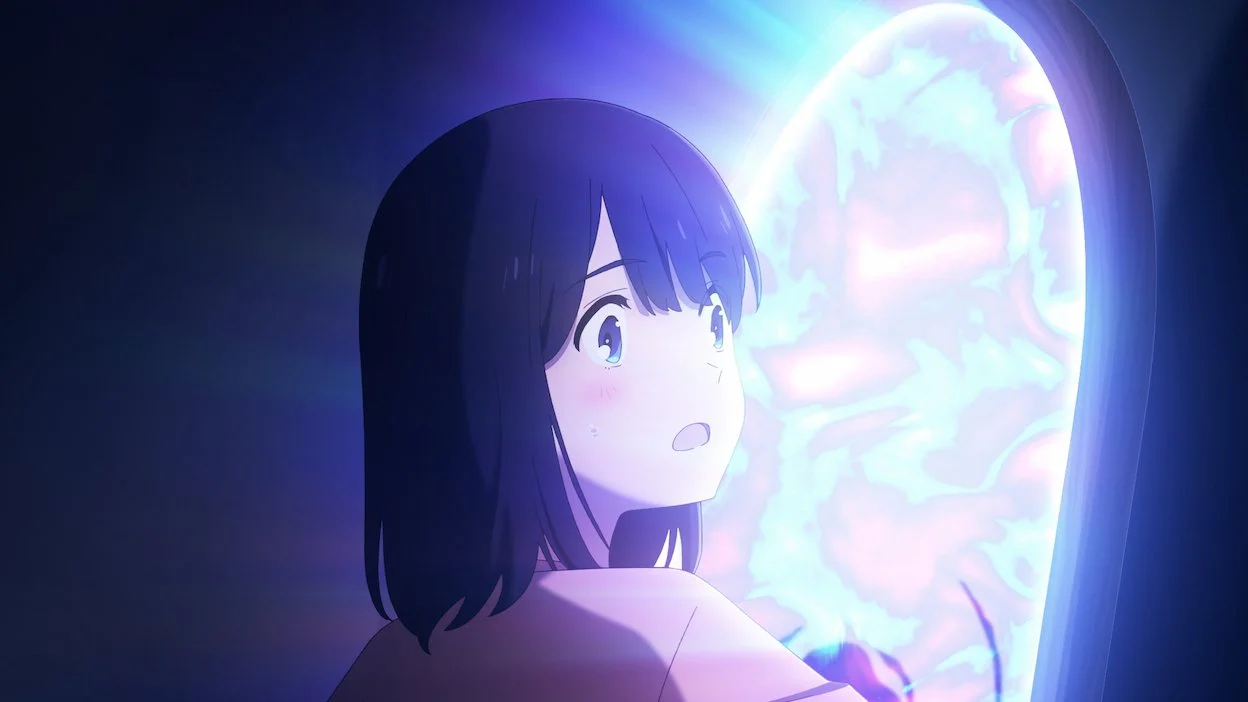‘Mirror’ Mirror
What budget? Keiichi Hara proves substance can beat style, at least sometimes, with his latest YA adaptation.
Lonely Castle in the Mirror
Directors: Keiichi Hara • Writer: Miho Maruo, based on the novel by Mizuki Tsujimura
Starring [Japanese]: Ami Touma, Takumi Kitamura, Sakura Kiryu, Rihito Itagaki, Naho Yokomizo, Minami Takayama, Yuki Kaji, Mana Ashida, Aoi Miyazaki
Japan • 1hr 56mins
Opens Hong Kong March 30 • IIA
Grade: B
Director Keiichi Hara seems determined to put his blue period behind him. Meaning, the filmmaker who cut his animation teeth on countless Doraemon (six to be precise) and even more Crayon-shin chan (13 of those) movies started a pivot towards more grown-up fare in 2007, with Summer Days with Coo – animated, with kids, but a bit older – then branching out to stuff like Miss Hokusai and a Keisuke Kinoshita biopic, Hajimari no Michi, his first and so far only live action film. Unlike anime giants Satoshi Kon (Perfect Blue), Mamoru Oshii (Ghost in the Shell), Katsuhiro Otomo (Steamboy) and, duh, Hayao Miyazaki, Hara isn’t known for an aesthetic that defines him, or a running thematic motif. He also doesn’t get to play with the budgets those filmmakers do. So his latest, Lonely Castle in the Mirror | かがみの孤城, is a hand-drawn affair, with the bit of CG that is thrown in for the central castle looking a little rough around the edges – or perhaps more like a PlayStation 2 cut scene. Needless to say Hara has to make up for in storytelling what he lack in visuals.
For the most part he does. Lonely Castle succeeds on emotional connection where it fails on high end graphics, and the closer you are to the age of the characters in the film the more it’s likely to hit. Based on a YA novel that deals with bullying, pressure to conform, pressure to excel, abuse and death from the point-of-view of the kids, chiefly a timid Year 5 student who’s terrified to go to class, Kokoro (Ami Touma), props must go to Lonely Castle for giving the kids agency when the easy plot machination would be to victimise them utterly. These ones are dealing with all sorts of shit but it doesn’t stop them from grabbing onto a life raft when they see one, or from forming a squad of their own when pushed out of polite school company for whatever reason. It’s still YA drama, but it’s empathetic YA drama.
When we meet Kokoro, she’s faking stomach pain so she can skip school. Her mother (Kumiko Aso) has heard all this before. She’s makes an exasperated call to home room and heads off to work. From her window, Kokoro watches her only friend and neighbour Moe drop a letter in the post box, but she does nothing to engage her. While cocooning in her room one day her mirror lights up and opens a portal to another… realm? Alternate universe? Yes, it’s kind of a multiverse again but it’s a castle. Anyway, she jumps through the mirror and is greeted on the other side by the Wolf Queen (Mana Ashida), and introduced to six other kids, probably skipping school as well. WQ tells them about a key hidden somewhere in the castle, which when found will grant a wish. Oh, and get the hell out by 5pm or get eaten by a wolf.
Spanning roughly a school year (that key is really hard to find), the seven outcasts, symbolic archetypes more than complete characters, eventually learn to trust each other and form genuine friendships that help them deal with their various traumas. Masamune (Minami Takayama) is a gamer kid; the pudgy Ureshino (Yuki Kaji) always has baked goods to share; Fuka (Naho Yokomizo) is a piano prodigy; blond Subaru (Rihito Itagaki) is a bit of a maverick; Rion (Takumi Kitamura) appears to have helicopter parents; and Aki (Sakura Kiryu) just has a crappy home. There’s more that binds them, and if you don’t guess what it is you need to get out more.
Hara and screenwriter Miho Maruo take their sweet time getting to where they’re going, and unravelling the knot that ties the seven together making it a chore to get through in more than one spot. The mechanics of the castle are a means to it as an end, and so the baby steps the kids takes to their own personal “healing” is what counts in Lonely Castle in the Mirror, and the backbones Kokoro and her new clique grow IRL thanks to finding each other. But at nearly two hours there’s plenty of fat that could be trimmed, especially when the art – always a major consideration in anime – isn’t strong enough to justify the bloat. We don’t need to marinate in the images when they’re simply a function of the messaging.
Like it did in Japan, Suzume beat Lonely Castle to theatres by a few weeks and got drowned out by Makoto Shinkai’s shinier offering, and that’s kind of a shame. As the scrappy underdog, Lonely Castle will, arguably, resonate with more people and straight up has more guts. It’s not terribly innovative but it does solid work in familiar territory, and it’s a satisfying watch for the target demo, with a solid third act that brings everything to a tidy, optimistic conclusion. You will drift off in Act 2 but you don’t have to feel guilty for it. — DEK



